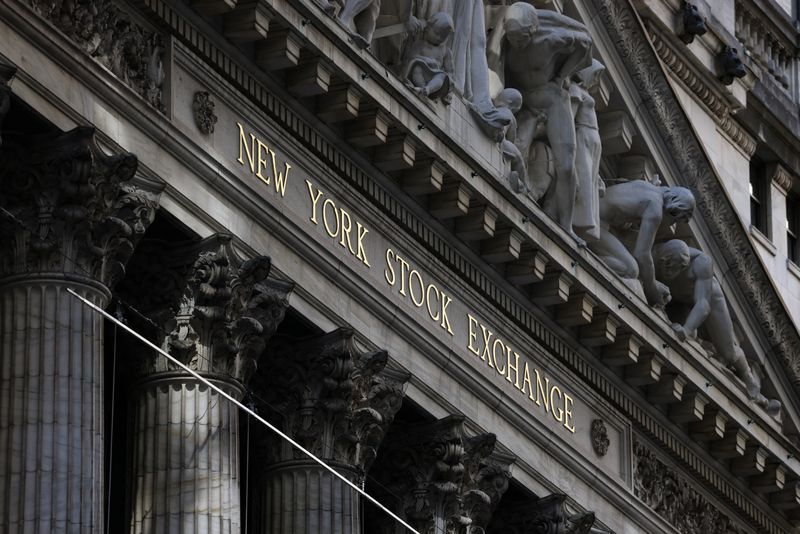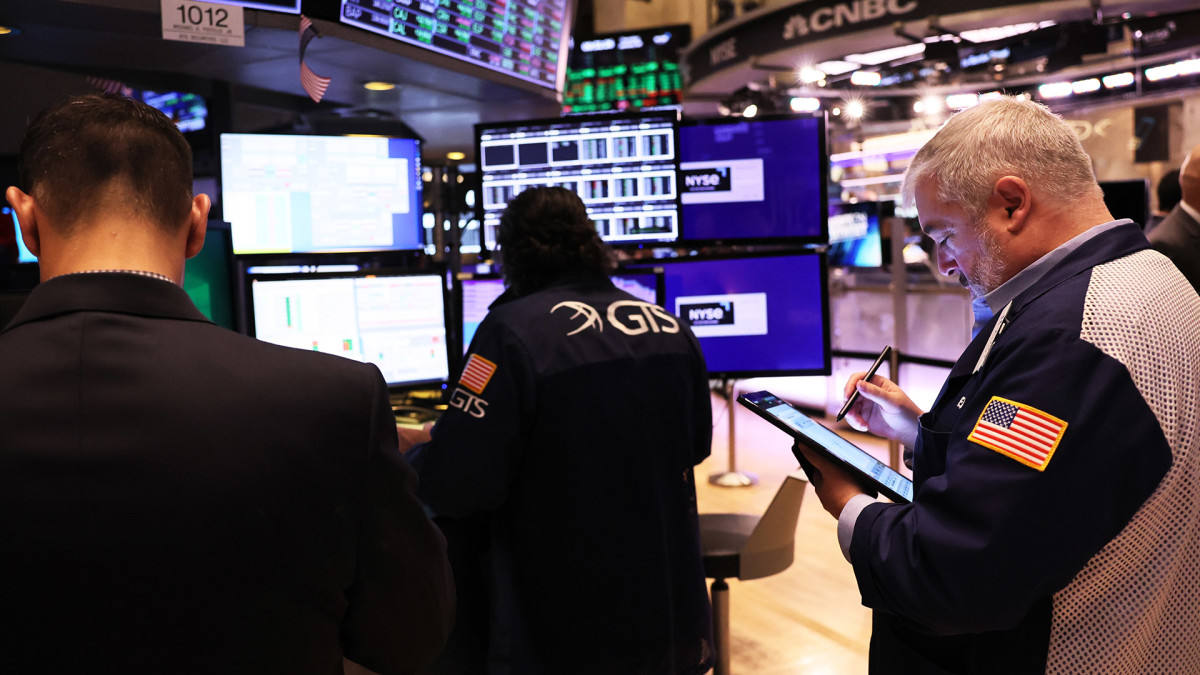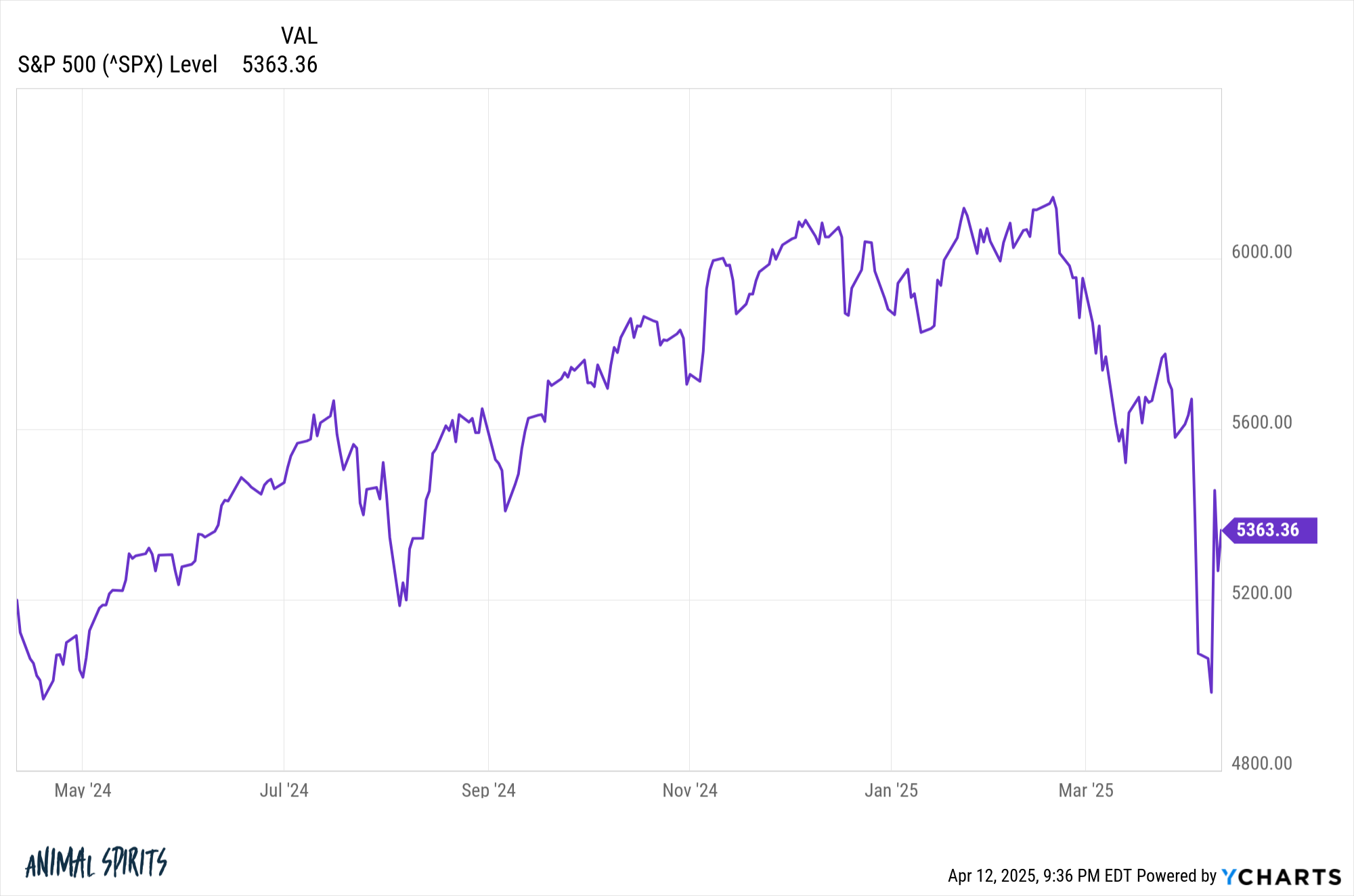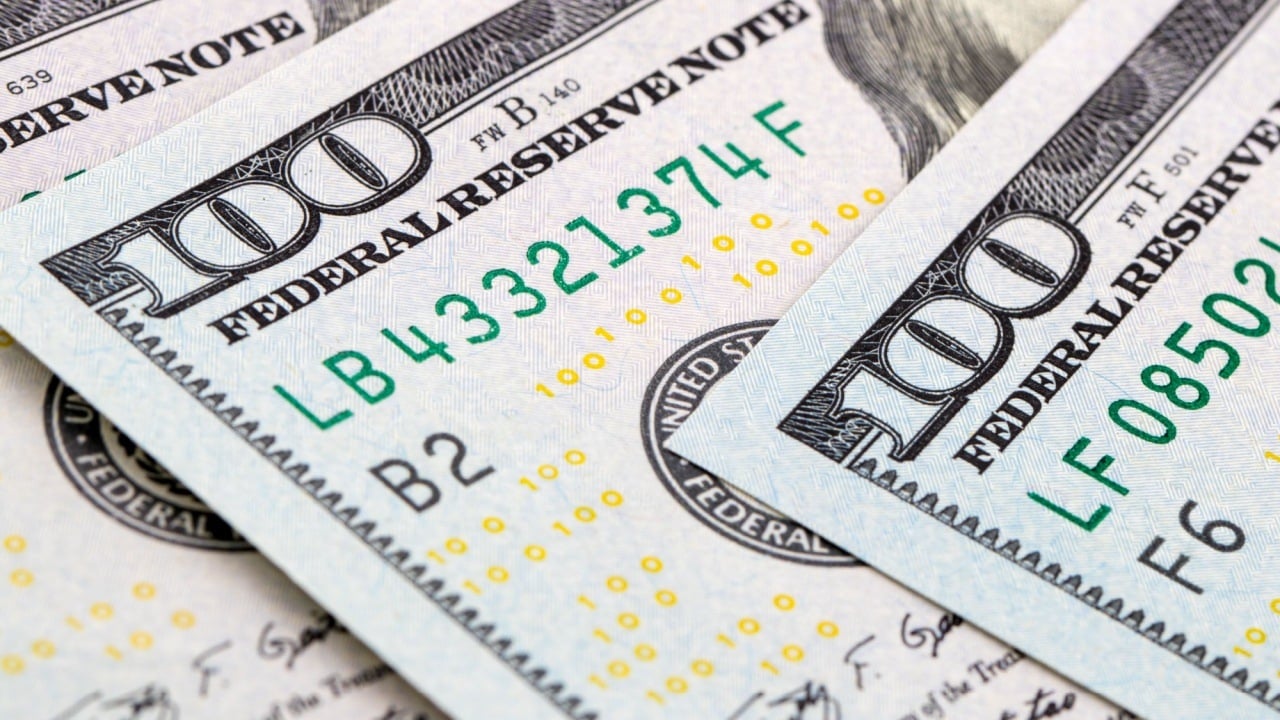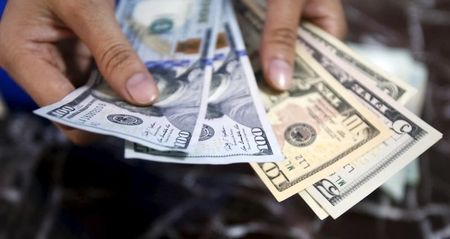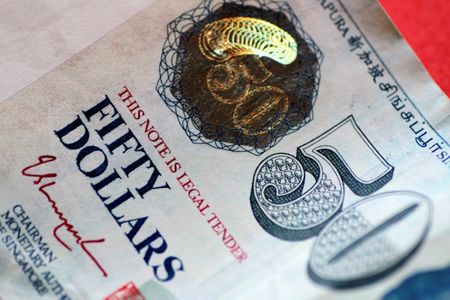Stock Market Today: Stocks nudge higher, dollar slumps as tariff war escalates
Treasury bond markets will in focus Friday as 10-year yields rise past 4.4%.
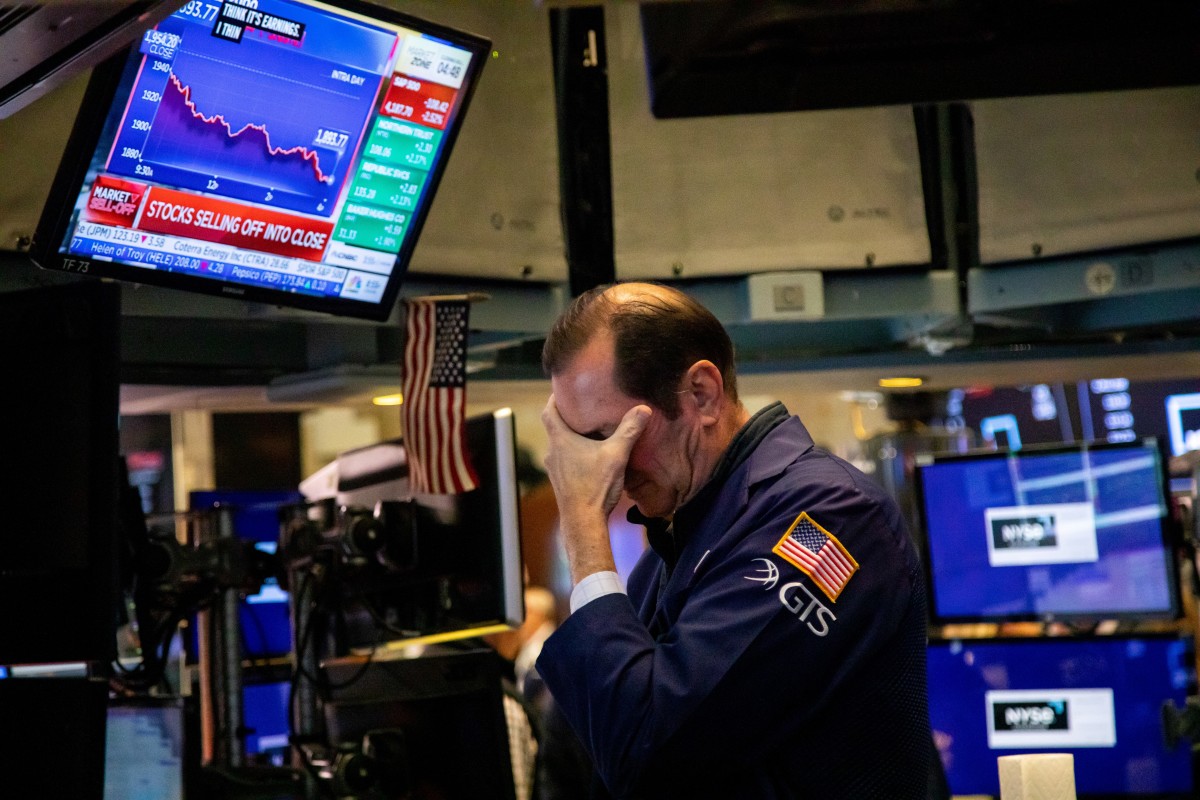
U.S. equity futures nudged modestly higher in early Friday trading, while the dollar slumped to the lowest levels in more than three years, as China hit back with a final retaliatory tariff on American-made goods and investors braced for the start of the first quarter earnings season amid the ongoing market turmoil.
Stocks end sharply lower again last night, with the S&P 500 falling 3.46% on the session as the rally stoked by President Donald Trump's decision to pause his so-called 'reciprocal' tariffs fizzled quickly in the face of rising bond yields and a slumping dollar.
The 'sell America' trade, which has included the dumping of around $6.5 trillion in U.S. stocks by foreign investors over the past week, according to data from Bank of America, has dragged the U.S. dollar index to the lowest levels since April of 2022 and raised broader questions over the nature of U.S. assets as safe-haven investments.
The dollar index, which tracks the greenback against a basket of six major global currency peers, was last marked 1.37% lower at 99.495 heading into the start of the New York trading session. 
Gold prices, however, were back marching higher, with the bullion topping $3,200 per ounce in overnight trading to extend its weekly gain past 5% and its annual rise past 21%.
Benchmark 10-year note yields, meanwhile, a proxy for risk free rates in markets around the world, edged to 4.411% in overnight trading, a level that is around 2 basis points higher than when President Trump issued his 90-day pause at mid-day on Wednesday.
U.S. assets are likely to be tested again today after China boosted its retaliatory levy on American imports to 125%, starting on April 12, a move that, with U.S. tariffs on China-made goods at 145%, effectively amounts to a trade embargo between the world's two biggest economies.
Related: Did Treasury bond markets cause Trump tariff blink?
China did say, however, that this would be the last of their tariff-related increases, although it left open the option to hit back with other tools if the U.S. were to escalate its trade war further.
"Given that American goods are no longer marketable in China under the current tariff rates, if the U.S. further raises tariffs on Chinese exports, China will disregards such measures," China's Finance Ministry said.
On Wall Street, investors are bracing for another volatile session to close out an historic week, with the CBOE Group's VIX index pegged at $44.03 heading into the start of trading.
At that level, options traders expect daily swings of around 2.75%, or 145 points for the S&P 500 over the next thirty days.
Against that risk, JPMorgan (JPM) , Wells Fargo (WFC) and Morgan Stanley (MS) will all publish first quarter earnings updates prior to the start of trading, with investors keying on the profit outlooks fore each of the three major banks, as well as any increase in capital they plan to set aside to cushion losses in their credit and lending portfolios as the economy slows.
Related: Bond markets whipsaw amid 'sell America' trade in safe-haven Treasuries
Heading into the start of the trading day, futures contacts tied to the S&P 500 suggest the benchmark will open 21 points higher from last night's close, which is now around 4.75% higher from Wednesday post-tariff pause rally.
Futures tied to the Dow Jones Industrial Average, meanwhile, are priced for a 75 point bump with the tech-focused Nasdaq called 85 points higher.
More Economic Analysis:
- Wall Street overhauls S&P 500 price targets as tariff selloff accelerates
- Inflation would like a word, please
- Stocks could bounce, but big bank earnings hold the cards
In overseas markets, Europe's Stoxx 600 fell 1.17% in mid-day Frankfurt trading, with the FTSE 100 down 0.22% in London.
Overnight in Asia, Japan's Nikkei 225 ended 2.96% lower following last night's slump on Wall Street, while the regional MSCI ex-Japan benchmark rose 1.37% into the close of trading.






































